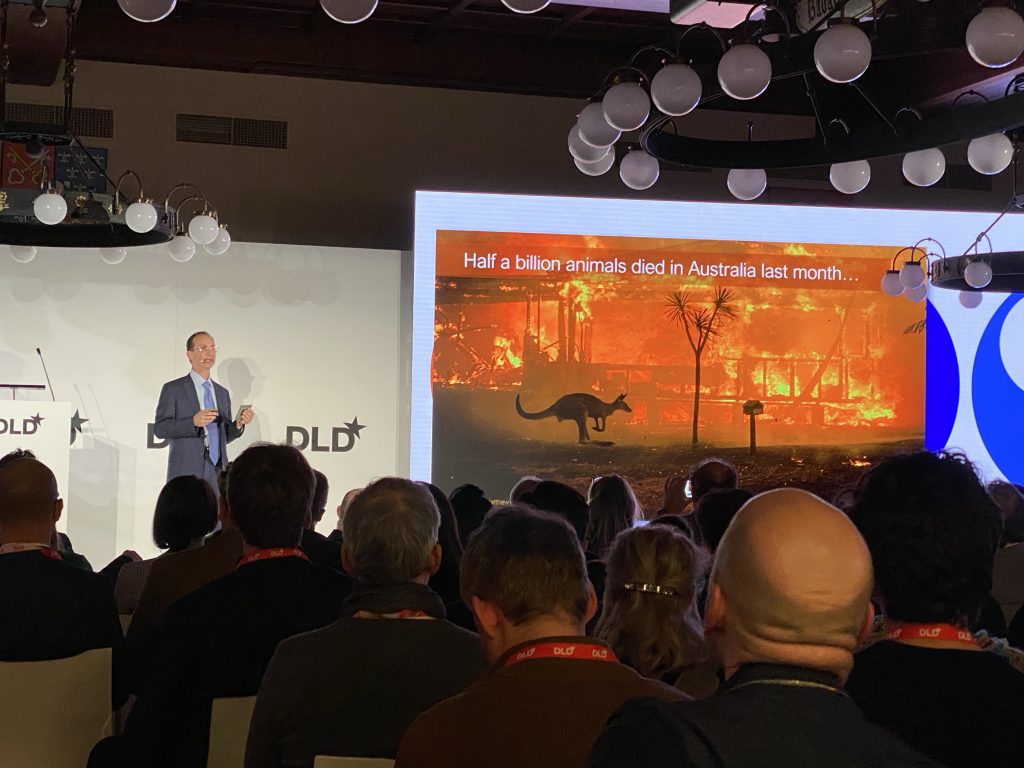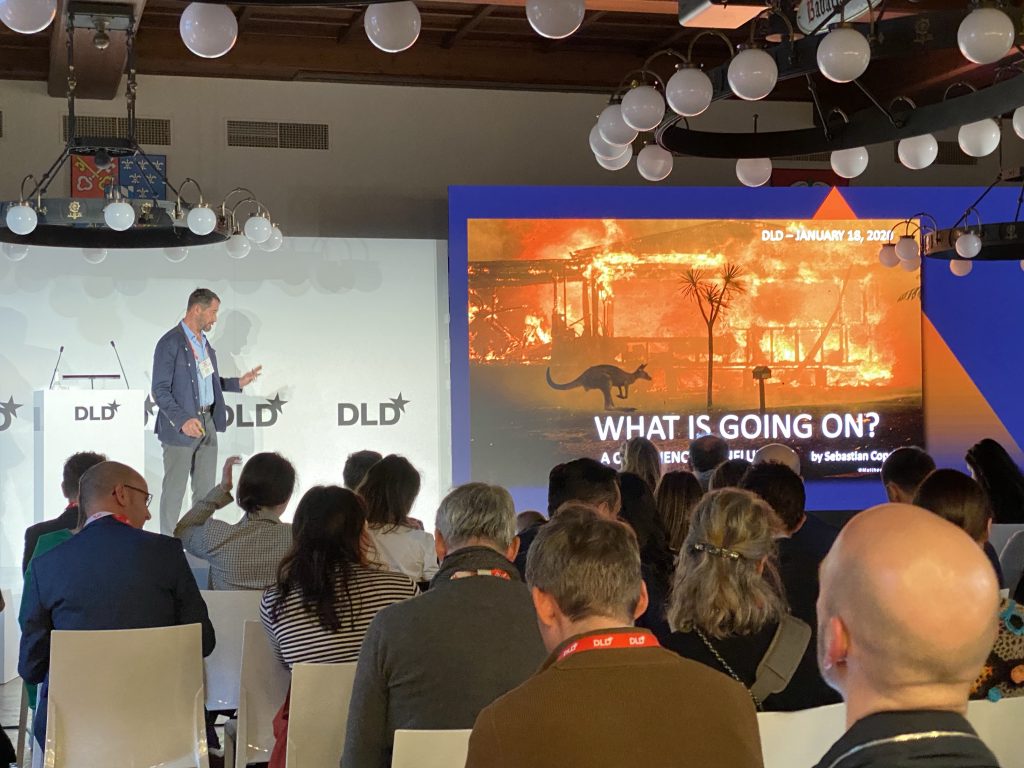I’ve just been in Munich at the DLD (Digital – Life – Design) conference, an invite only event for people keen to change the world in the digital area. There were presenters from business, science, art and political backgrounds, and the chair of the conference challenged us to spend as much time in the corridors as we did listening to the presenters, as that was where the real insights would be delivered.
The theme for this years conference was ‘What Are You Adding?’ recognising that change starts with each and every one of us making a commitment at a personal level rather than sitting waiting for government or corporates to lead the way.
It was a fascinating event, with lots of very thought provoking presentations and conversations. I’ve attempted to capture my key personal take outs here.
The bushfires have changed the world’s perception of Australia
Travelling as an Aussie has always been a relatively easy exercise in my experience. Australians seem to be pretty universally liked across most of the world, and don’t seem to have many of the negative travel personas attached to us as so many other nationalities.
The bushfires have changed that. Time will tell if it’s a lasting effect, but it’s certainly very real at present. Everyone, from Uber drivers to waiters to hotel staff is aware of the bushfire crisis, and as soon as they know you’re from Australia it’s all they want to talk about. There’s a great deal of sympathy, but there’s also a significant amount of disbelief that the fires haven’ t triggered an immediate acknowledgement by our country’s leaders that climate change is having real and catastrophic impact.
At DLD, where multiple presenters used images of the bushfires to illustrate a world in environmental crisis, and the vast majority of the delegates were passionate around the need for prioritised climate change actions some of the conversations were quite confronting. As the small group of Aussies in attendance gathered and shared our experiences, we all reflected that it was a very different to what we’re used to encountering, and fuelled a belief that the world (or parts of it) is going to hold Australia accountable for what it does in response to this disaster.
The Climate Clock is ticking but it’s not too late
While the climate news is grim, the positive was that the presenters almost universally believed that there is still a short window of time available to make the necessary changes, and that technology, and computing power in particular, is going to provide the solutions we need.
Marc Buckley’s presentation on a global action plan was fantastic (you can watch it here) and provided a great reminder that we need to do more than slow down – that will still get us where we’re headed, just at a slower pace – what we need is to change direction and arrive at a different destination.
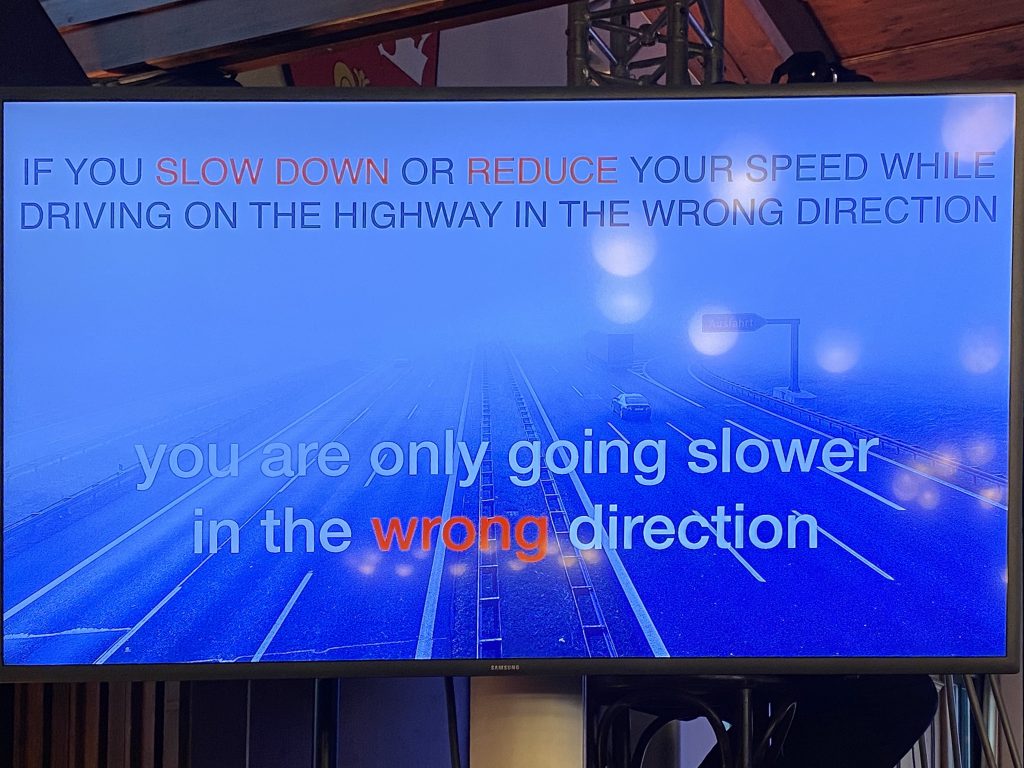
He also challenged corporates to not just think about their sustainability actions going forward, but to include a plan to compensate for their historical carbon emissions and rectify the damage their past behaviour has caused.
In the spirit of the theme of What Are You Adding, Christian Kroll from Ecosia provided a really simple change we can all make to make a difference. Switching to Ecosia as your search engine allows them to utilise the profits they make from selling advertising to plant trees. They’ve planted over 80M already, and provide the added benefit of not selling your search meta data. I’ve been using it for the past few days and can happily report I’ve found it just as effective as the search engines that are household names.
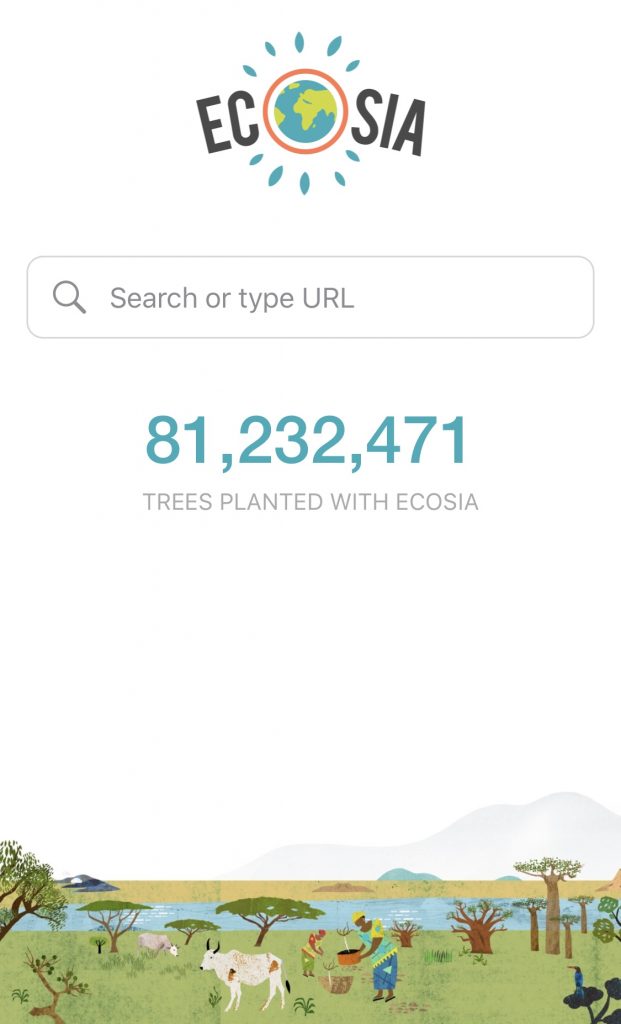
Fake is more than news
Maria Ressa delivered a harrowing presentation on what the Phillipines extraordinary high uptake of Facebook (100% of Filipino’s on the internet are on Facebook) has facilitated in the proliferation of fake information, which I would highly recommend watching.
Maria asserts that a lie told a million times becomes fact, that without facts we don’t have truth, and without truth we don’t have trust. Facts are the foundation of the information ecosystem, and that without facts, truth and trust democracy is impossible.
Another must watch is Joy Buolamwini’s algorithmic poetry (yes you read that right!) highlighting the inherent bias in facial recognition systems towards black females.
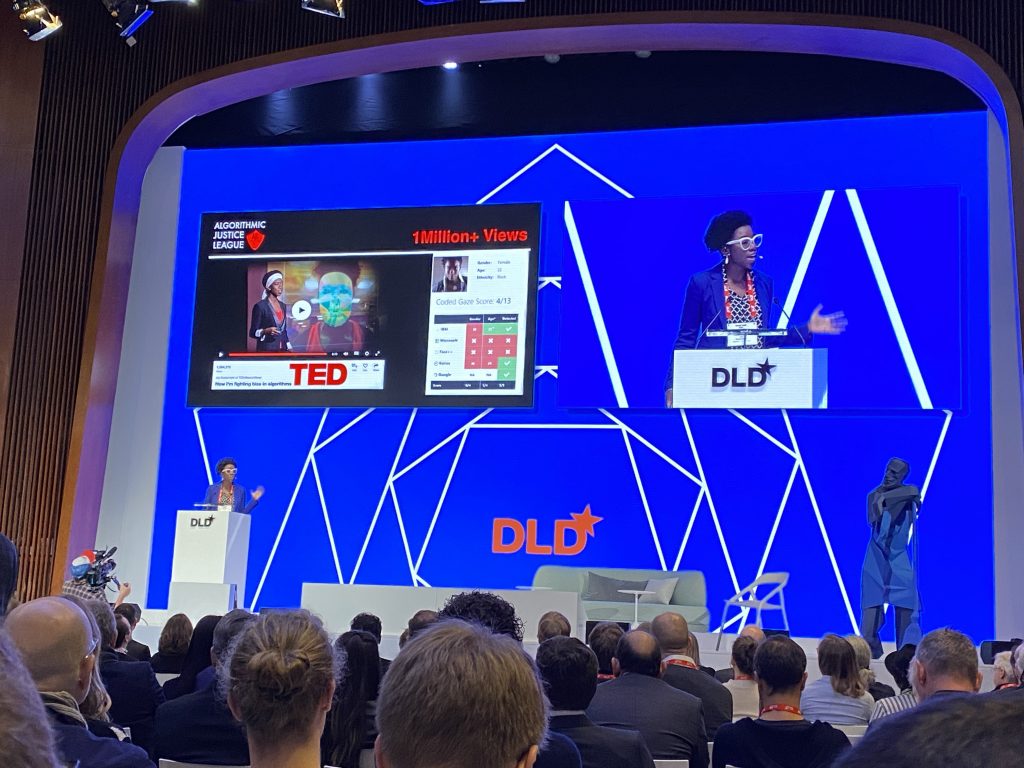
With deepfake videos and images making the artificially created seem real, the lines between reality and artificiality are blurring in a way that is deeply concerning. When fake is repeated often enough it becomes real, and as always the bad actors are claiming first mover advantage in the adoption and uptake of this type of tech.
Cybersecurity challenges haven’t really even started
The introduction of 5G and quantum computing technologies are going to require significant scale up in terms of cybersecurity strategies and protections, which is a worry when so many companies are still falling well behind what’s required to securely manage current tech.
Medical devices and their relatively poor track record in providing adequate security protections have been highlighted in recent years, with hackers illustrating how easy it is to take control of both pacemakers and implanted insulin pumps, which has some pretty scary connotations.
As the use of implantable devices increases, Divya Chandler gave a great presentation asking when the organic human ends and the digital human begins, and what that means when humans themselves can be hacked. Password management becomes even more challenging when they can be recreated by reading your brainwaves!
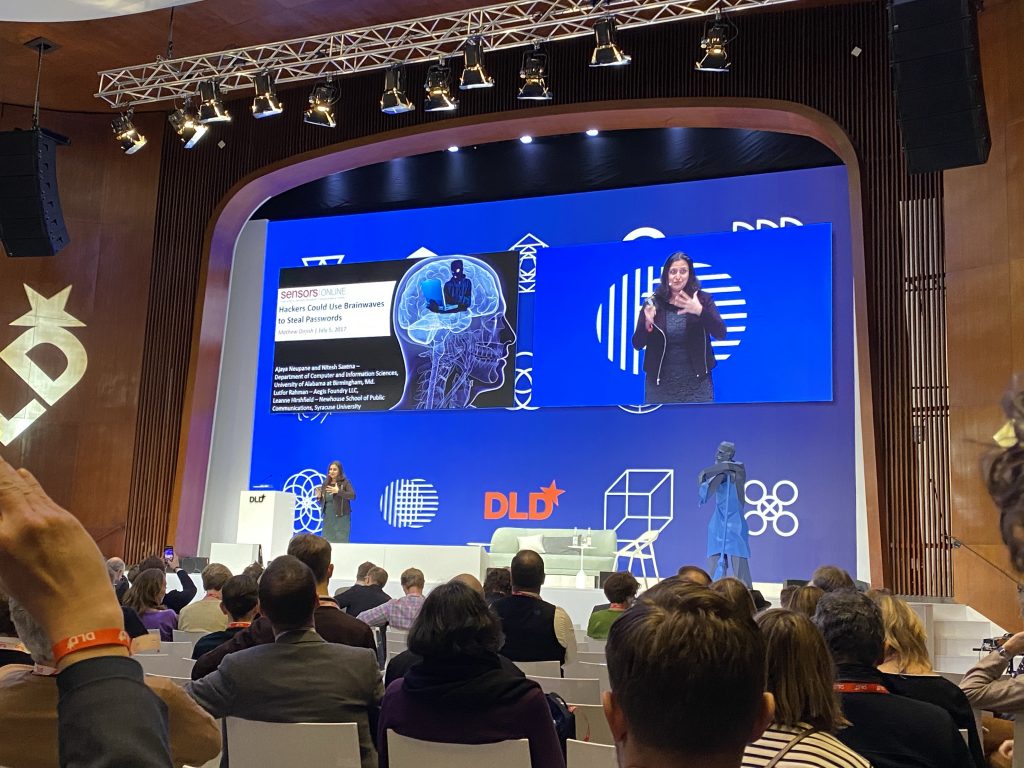
There’s always still the weird and the wacky applications of tech though, and one of my favourites in this presentation was hearing about the seismic dancer, who has had sensors implanted to better enable her to capture the seismographic tremors that inspire her art!!
Many of the sessions weren’t easy listening, and I don’t think any of the delegates walked away without being deeply challenged around what their own personal actions resulting from what they’d heard would be – I know I was.
When the point of the conference was to have each of us challenge ourselves to determine ‘What Are You Adding?’, the presence on stage of a statue of Beppo the street sweeper from the book Momo by Michael Ende provided a silent visual focus. In the (paraphrased) words of Beppo ‘sometimes when you’ve got a very long street ahead of you, you think how terribly long it is and you’ll never get it swept…you must only concentrate on the next step, the next breath, and the next…and all at once before you know it, you find you’ve swept the whole street clean, bit by bit.’
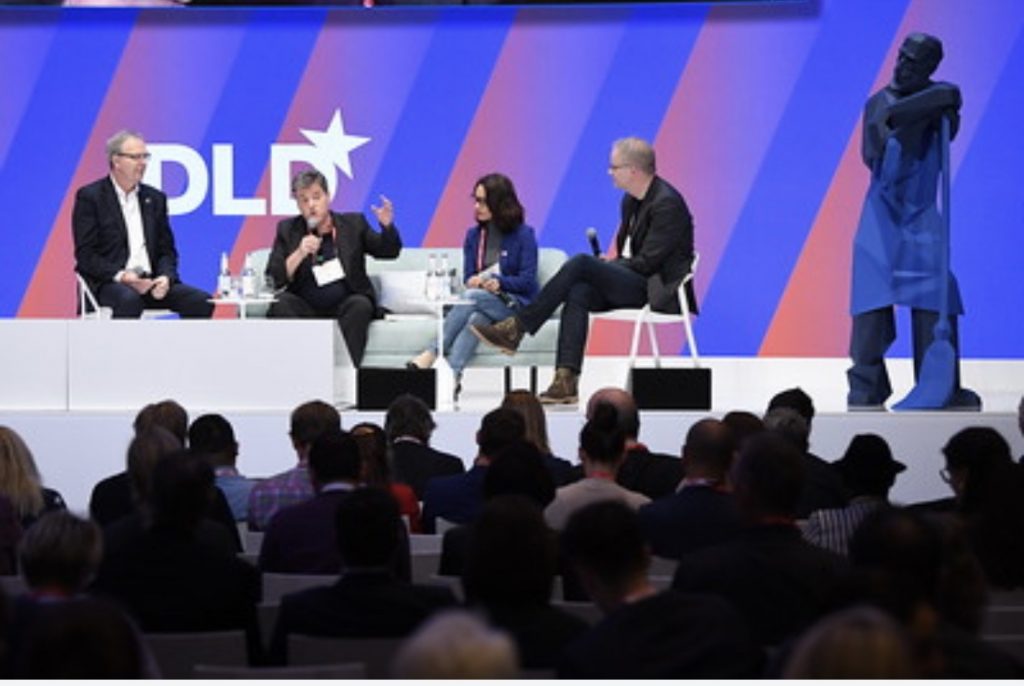
If we all focus on the parts we can each sweep it doesn’t diminish the size of the task, but the more individuals who commit to taking their own personal actions, the greater the likelihood that corporations and governments will be dragged along by that momentum. I know I’ve left Munich with changes already made and more to follow.

